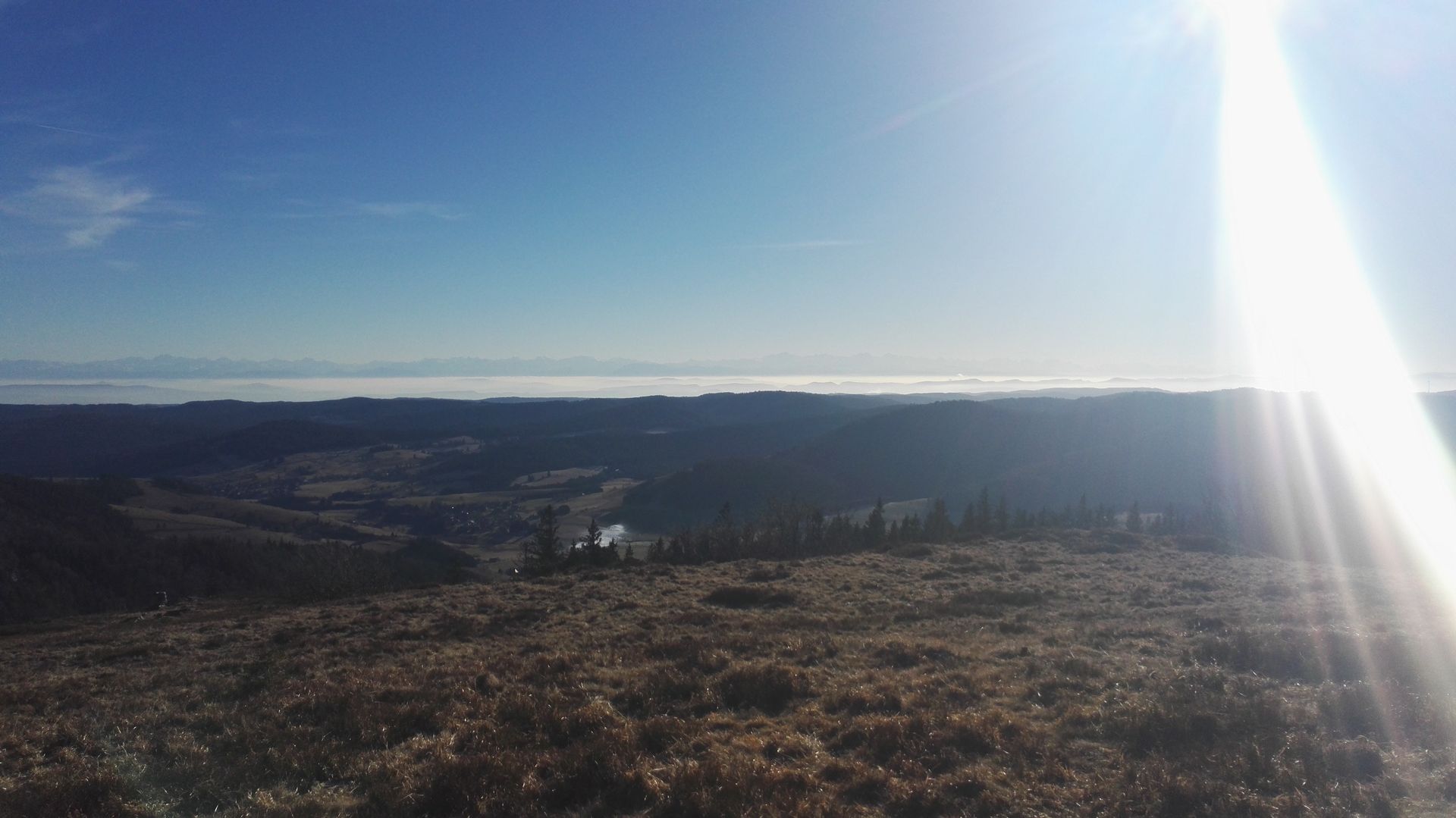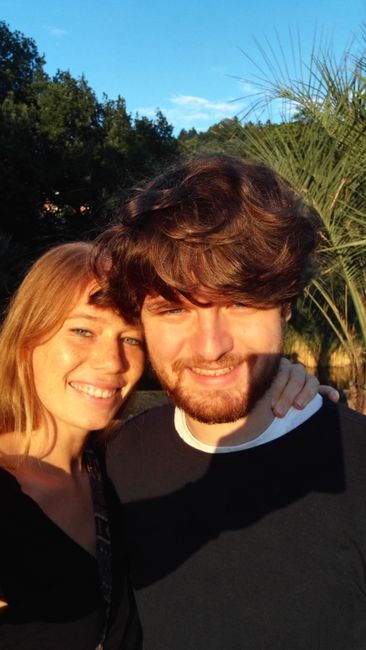Freezing ice in the mountains of Montenegro
已发表: 24.11.2018
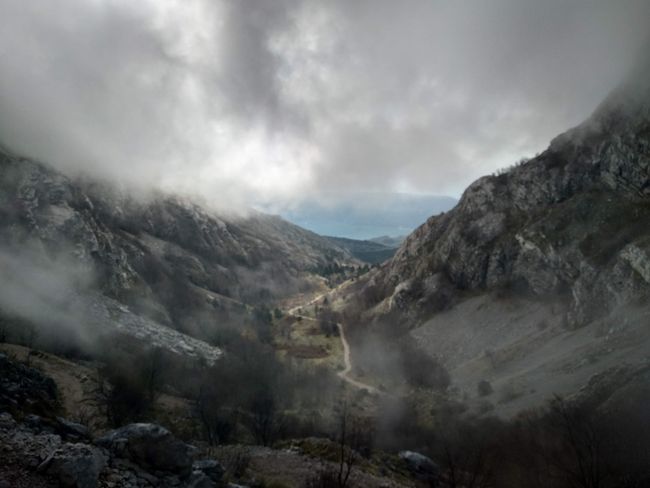
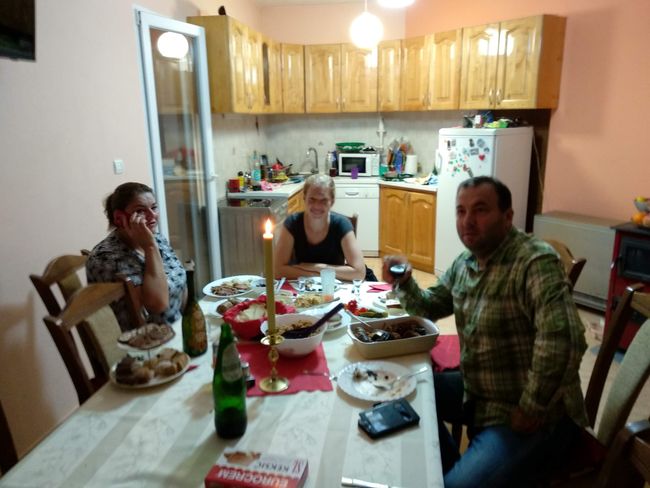
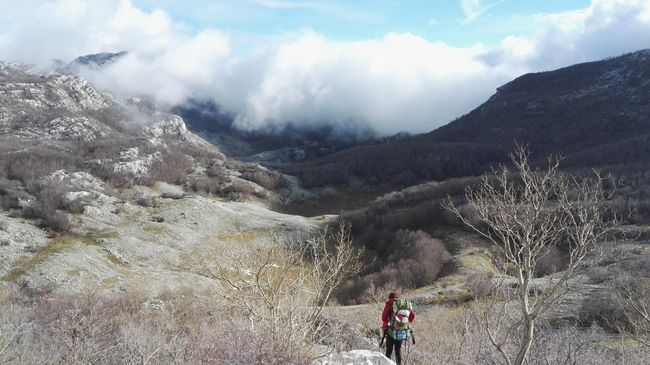
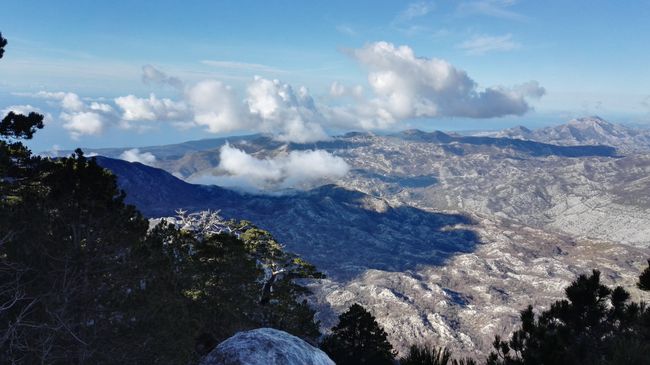
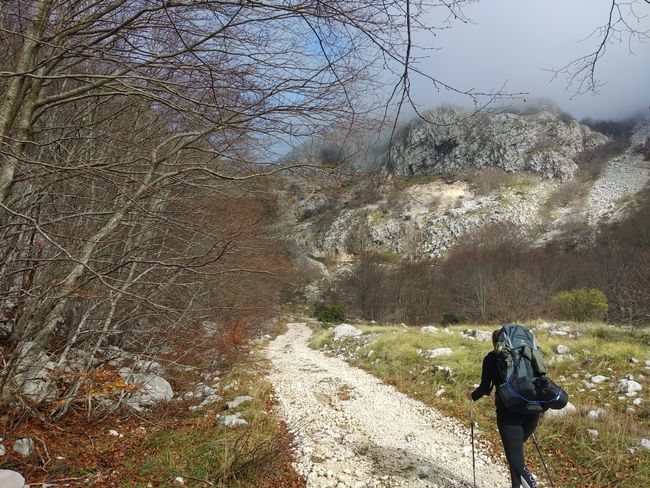
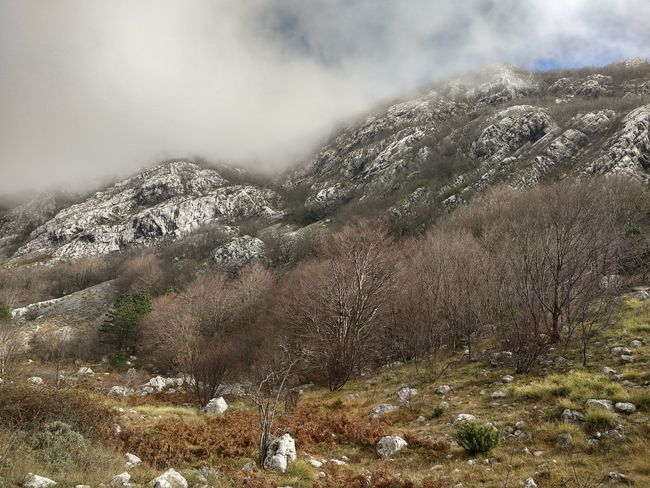
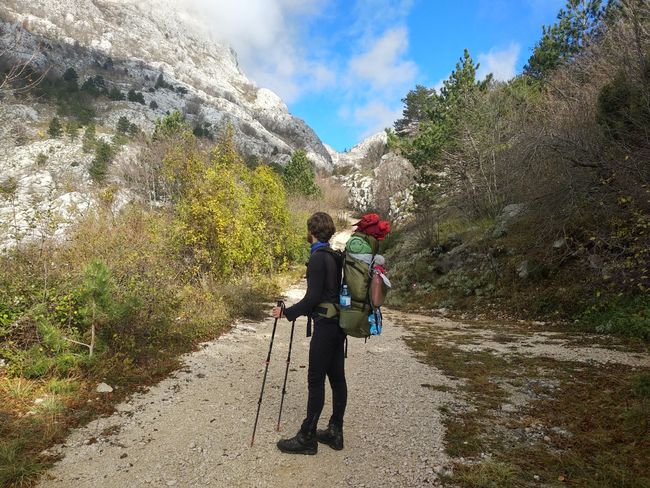
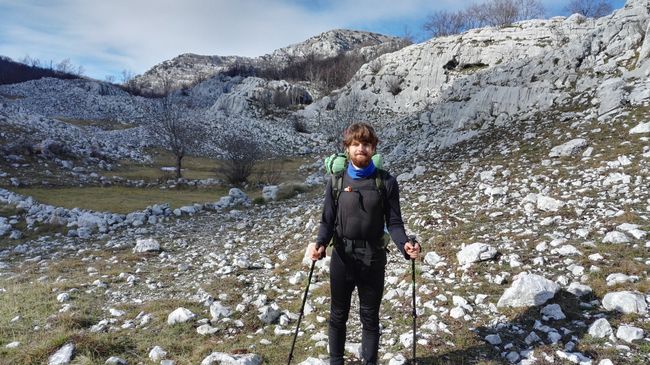
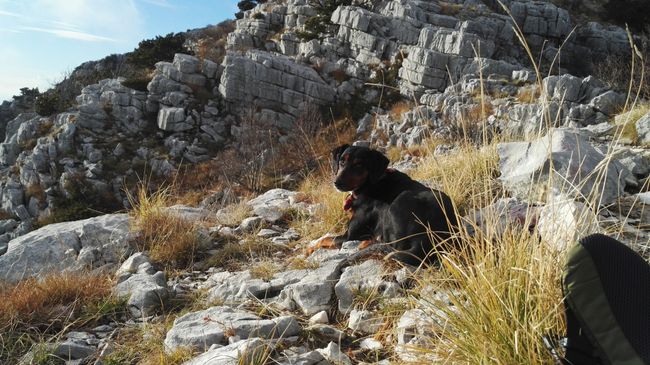
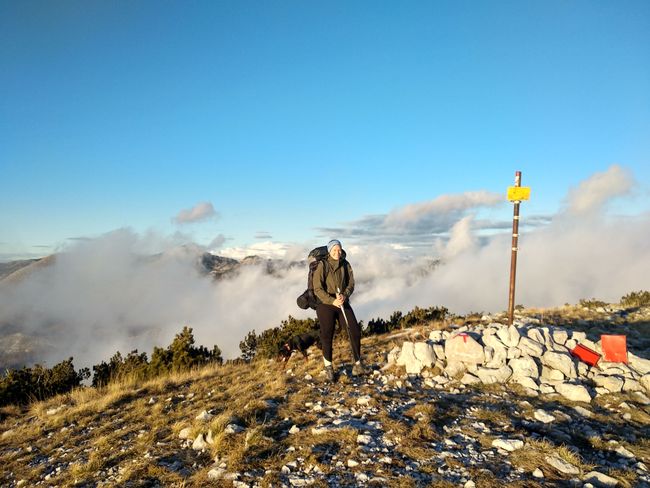
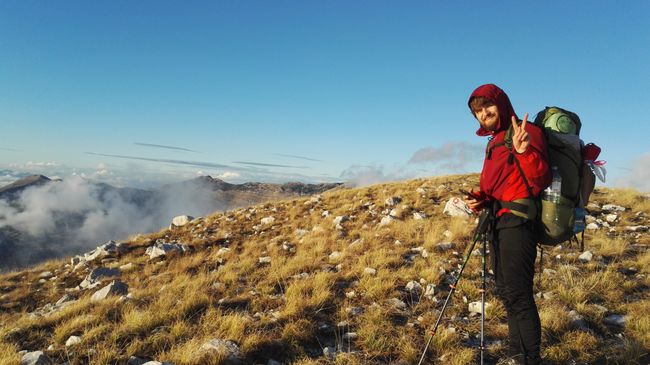
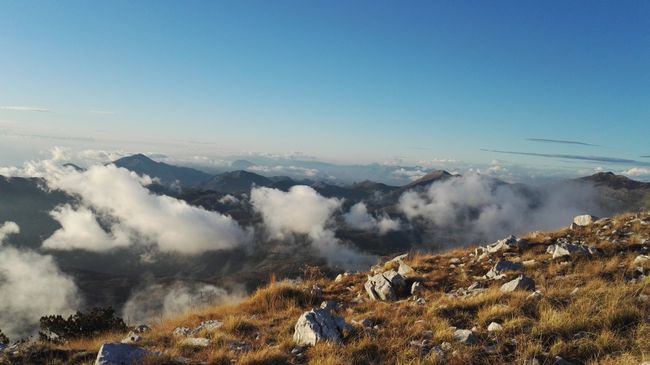
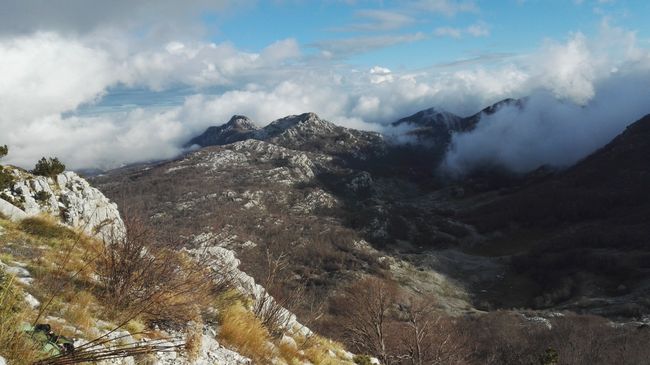
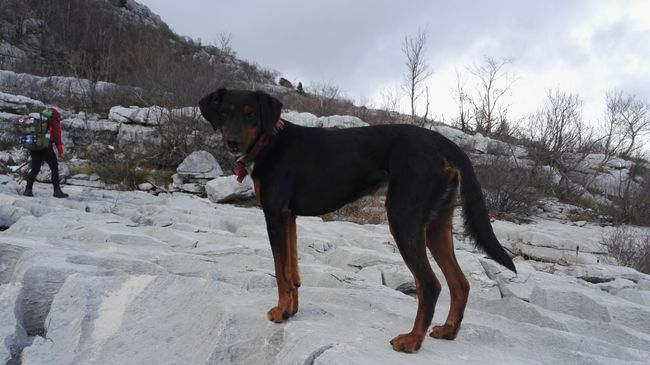
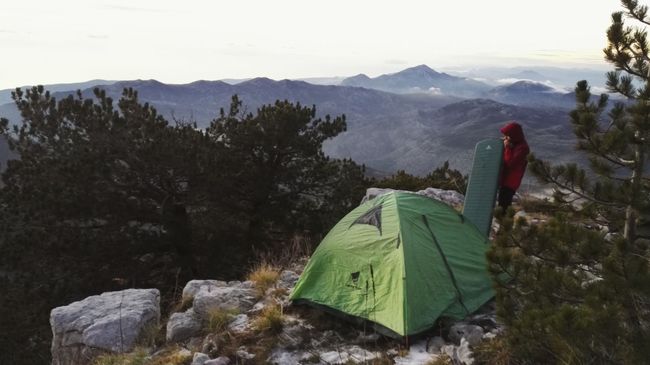
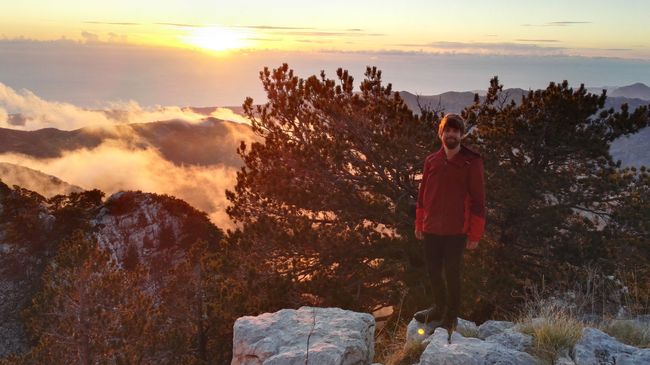
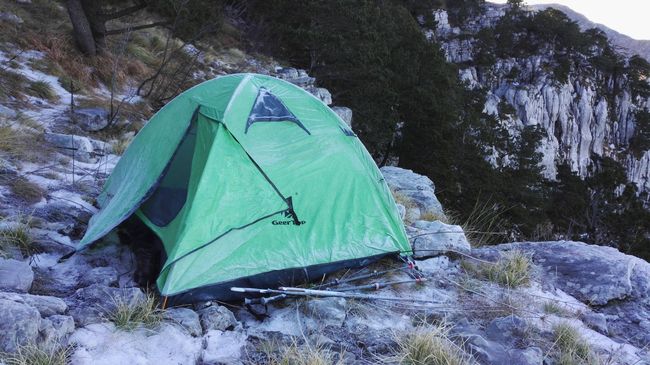
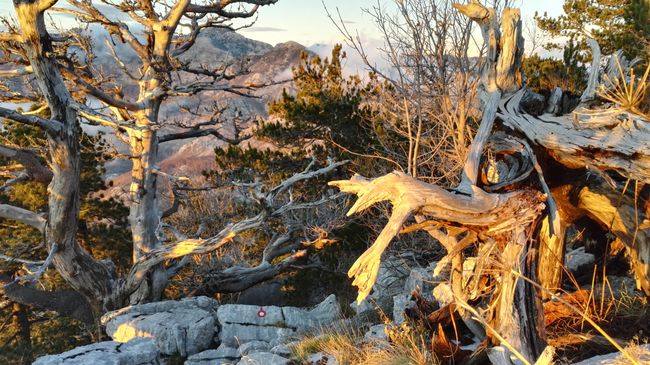
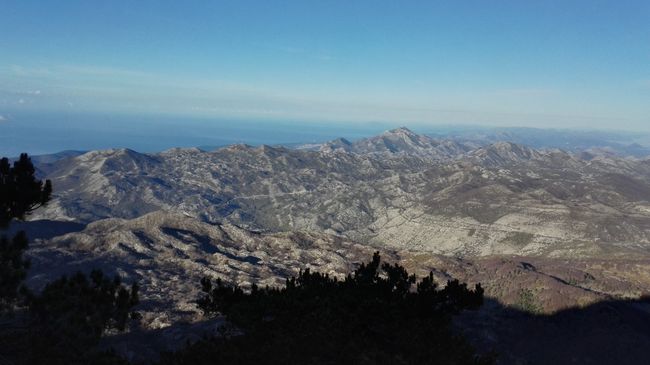
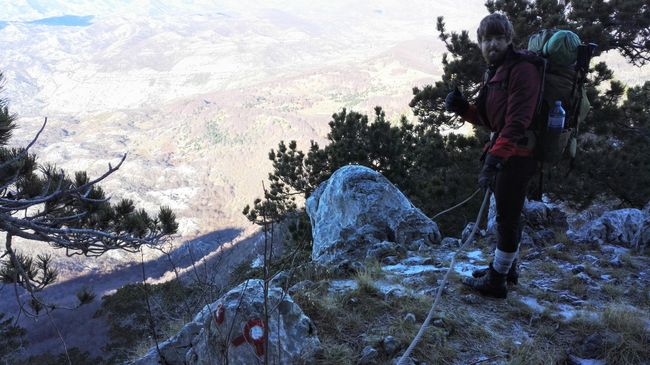
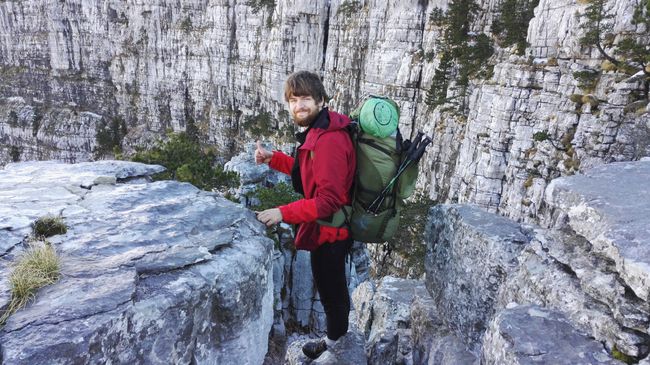
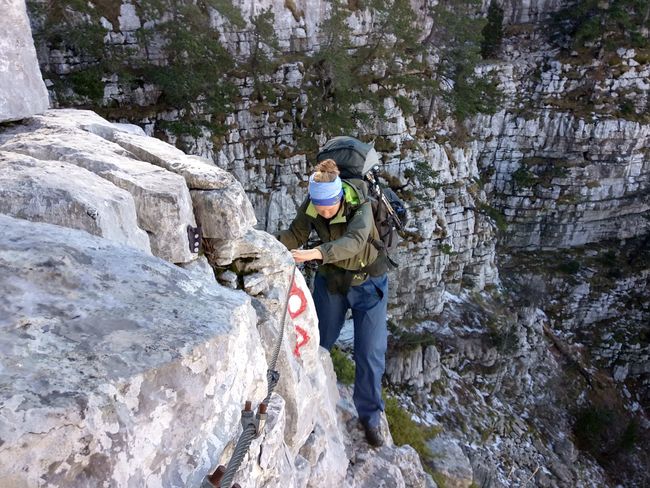
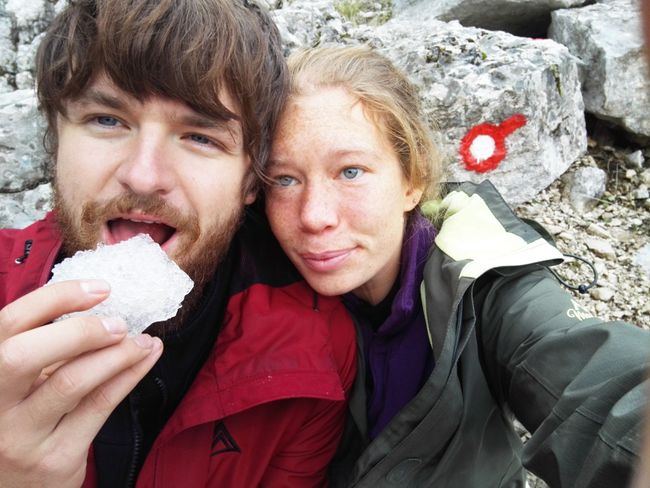
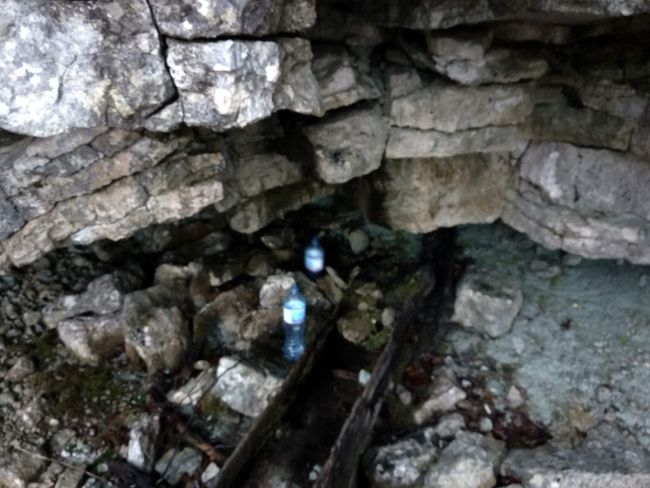
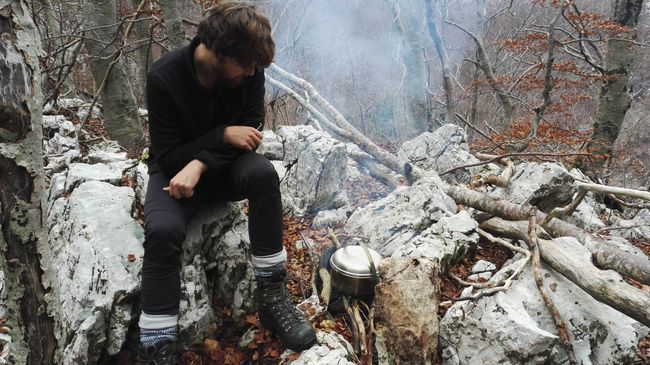
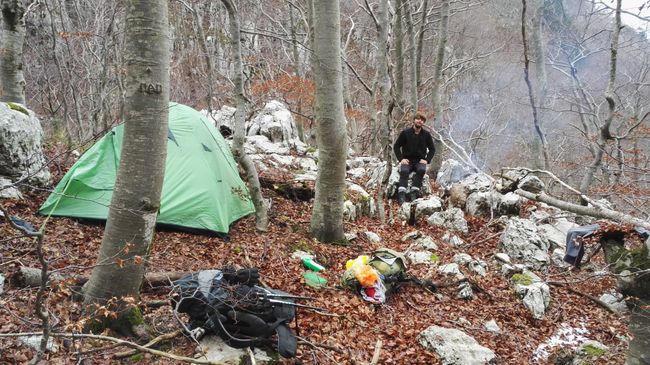
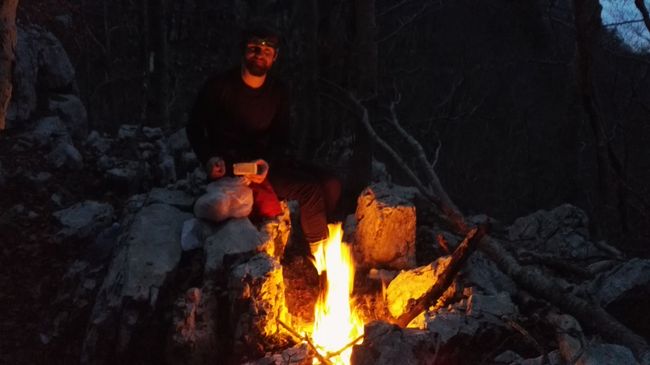
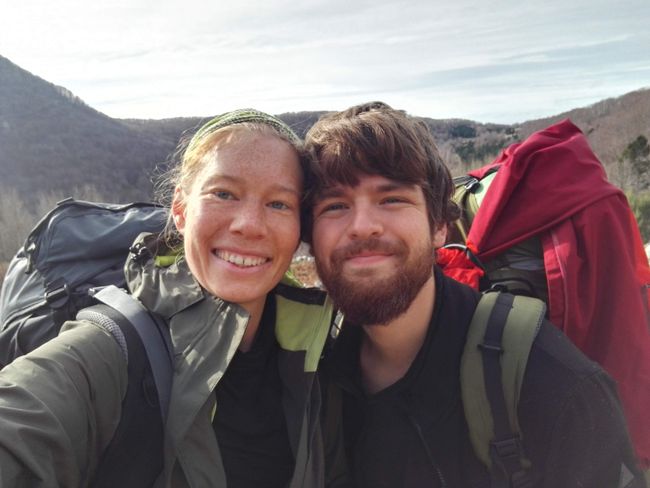
订阅时事通讯
The weather significantly worsens after Heidi's departure, making hitchhiking more unpleasant. Therefore, we blindly board the next bus at a stop in Dubrovnik and end up in a small village called Mlini, not far from Dubrovnik. There we spend a few days, keeping the rain and thunderstorm outside. We continue to sort out our backpacks so that we can go on hiking trips with them and we reorganize ourselves, thinking about how the journey should continue with winter approaching. We switch to a very calm and comfortable mode, but after a few days, we definitely want to leave it again, so we plan to go to the mountains of Montenegro.
We take a bus to Herceg Novi, where in the evening we are allowed to participate in an Orthodox festival at a family's house where we are staying. The guests are already gone, but there is still plenty of food, including a lot of fish and eel in all possible forms, a real challenge for Miriam. From Herceg Novi, there is a long-distance hiking trail that leads over the mountains to Kotor (about 60km). The problem with this route is the lack of shopping opportunities, as you are almost only in the mountains and hardly pass through any villages. Equipped with 4 loaves of bread, a large piece of cheese, some chocolate bars, and 4 bottles of water, we want to give it a try and set off into the mountains. When we pass a small mountain village at the beginning, a friendly dog joins us, who seems to be on an adventurous journey just like us, and he accompanies us. Although we often don't see him for some time because his curiosity leads him into the deep undergrowth, he always waits for us somewhere. When we take a break, we share our bread with him.
The large backpack weighs heavily on our shoulders and the path is demanding. It goes steeply uphill and we have to climb over rocky plateaus, which feels like climbing stairs and is not easy to do with the backpack. But the view is worth it. The way to the first summit Subra at 1679 meters above sea level is long and we often think that we have finally made it, and then a higher summit appears out of nowhere. So we cover 1300 meters in altitude and when we arrive at the top, we have a breathtaking view over the clouds in the evening sun. But the low sun also means that we urgently need to find a camping spot and the rocky and snow-covered summit does not look like a place where we can set up our camp. We descend from the summit, hoping to soon find a grassy plain, but when the further path comes into view, our hopes fade away. The best solution is to squeeze our tent onto a rocky ledge just below the summit. We have no choice but to camp on snow at an altitude of 1600 meters, and anticipating the icy night, we put on all the clothes we own. We are worried about the dog, who leaves us shortly before sunset and who has to find shelter somewhere or climb back through the dark cliffs. Our plan was actually to take him into the tent with us. Camping directly on the slope gives us an uneasy feeling and the next morning our tent is frozen and covered with ice crystals, but we survive the night unscathed.
Our joy that the night wasn't as bad as we thought ends abruptly when we start the further descent. The ground is completely covered with hard ice plates and a steep karst wall stretches hundreds of meters into the depths. Whenever we think we have overcome the worst spots, a new, more tricky part comes along, which often makes us break out in a cold sweat. We realize that we are on an icy via ferrata and for the first time, we have overestimated ourselves on a hiking tour. But there is no turning back for us, because the distance already covered has taken an hour, and we hope to have it done soon. Sometimes we try to move down the slope on all fours, we take off our backpack and throw it a bit ahead or we have to smash ice plates with our shoe. In doing so, our last water bottle, with a loud crash, rolls down the slope. Now we have nothing more to drink, but at that moment we just have to laugh about the situation we have gotten ourselves into. After four hours, during which we have made progress at a snail's pace, we have overcome the most dangerous passages. However, we no longer have any water and so we eat the snow lying around. When we reach the forest, we are so exhausted that we set up our tent, make a campfire, and melt snow in our pot. However, the water tastes smoky and earthy, so we don't want to drink it. Jakob sets off one last time to climb a little further up the mountain, because there he can reach a point where water drips from the rock walls. After half an hour, the bottles are filled and after the nerve-wracking descent, the water tastes better than it has in a long time.
We decide not to continue the long-distance hiking trail, as an even higher summit lies ahead of us and the weather conditions in November are too unpredictable. We descend to a small mountain village from where we want to hitchhike back to Herceg Novi. We are shocked to find that this village is really very small and most of the houses appear uninhabited. When the only car we can see in the area approaches us, we stop it. The two women in the car actually turn back, and we can get in. The drive around the mountains takes 45 minutes and we are glad that we don't have to walk back. From Herceg Novi, we take the bus to Kotor. There, we search for over an hour in the winding streets for the correct house number of our Airbnb accommodation, ask a dozen people for directions, and have some of them call the landlady for us. Finally, we find number 444 and can finally rest in our room. We will not forget the hike anytime soon.
订阅时事通讯
回答 (2)
Ida
Wow, das klingt echt nach einem Abenteuer!nononwil
Zum Glück ist alles gut gegangen.
Tolle Bilder!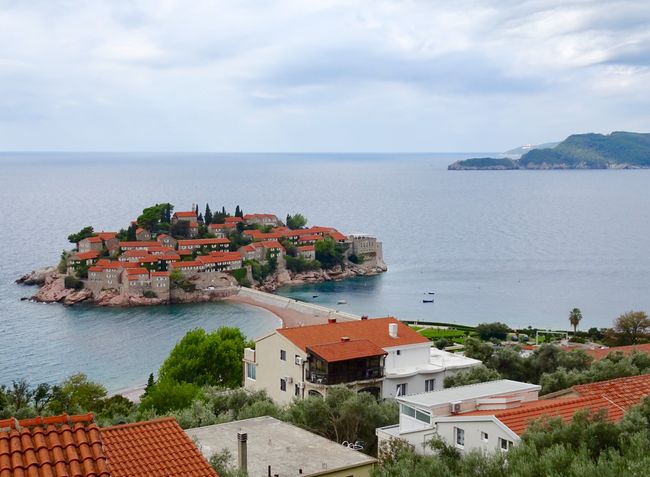
旅行报告黑山
